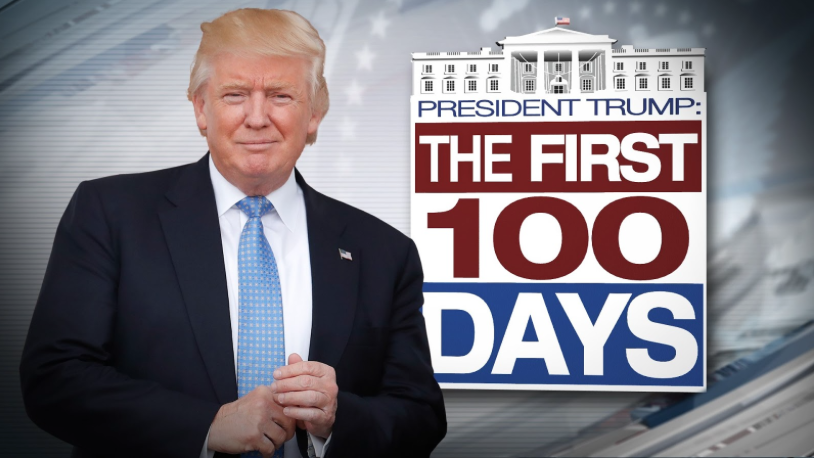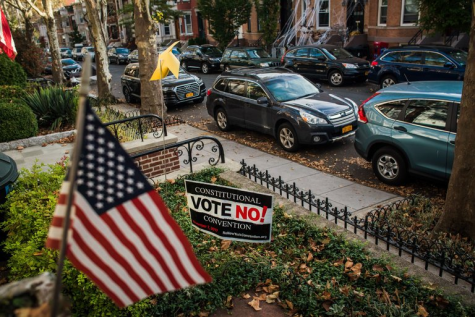Trump’s First 100 Days Plan
A very important aspect of a president is what he plans to do as soon as he comes into office, often known as the “First 100 Days Plan.” Donald Trump is currently in this period of time. His intentions for the next few weeks range from cutting regulations on businesses to repealing and replacing the Affordable Care Act.
Republicans in the past have been known to support less government intervention in the economy, and Trump is planning to take multiple steps towards this historical policy. According to CNN Politics, “Trump will formulate a rule that says for every one new regulation, two old regulations must be eliminated.’”
Trump has made it very clear throughout his campaign that he does not support Obamacare, and wants to replace it as soon as possible. Obama’s signature piece of legislation has benefited millions of Americans in the past few years with “Health Savings Accounts” and “the ability to purchase health insurance across state lines;” it has even saved people’s lives. As reported by NBC News, “Repeal of this law very likely means a return to the bad old days of pre-existing condition exclusions from health insurance and denials of insurance outright.”
Another aspect of his plan is to have America withdraw from the Trans-Pacific Partnership, or TPP, and replace it with “fair bilateral trade deals.” According to CNN Politics, “the move will shatter President Barack Obama’s aim of strengthening US influence in Asia and could leave the Western world’s trade agenda in disarray.”
Many people have taken a stance on the intentions of Trump. While some support his views, others disagree with his plan, and others still blame critics for not letting him do his job.
A Walt Whitman student, who prefers to remain anonymous, thinks Trump’s policies have the “tendency to put America first, as promised. National Security and economic security seem to be top priorities… his goal is to reverse the changes Barack Obama made to this country.”
Another Whitman student believes “more would get done without the obstructionists in the Democratic minority in the House and the Senate.” This student believes that the “roadblocks being presented with judicial activists are not helping progress.”
Jaden Speter, a Sophomore at Whitman, acknowledges that Trump’s “intentions and overall support of his plans are well-backed.” Like his classmate, Speter believes that the “leftist party members are unwilling to accept defeat, and refuse to back Trump’s plans.” Without the roadblocks presented by these “leftist party members,” he thinks that his “first 100 days could be much more successful. If the left learns to accept defeat and embrace change, we could once again unite this broken America.” To conclude, Jaden stated that if Trump truly wishes to have a “successful 100 days and continue his plans, he must be perceived as less ‘extravagant,’ for lack of a better word, by the opposition.”
On the contrary, Shaan Khan thinks that his plan “could have gone better.” Khan thinks that Trump’s agenda would have been received a little better if he “acts more mature and doesn’t criticize the media so much.”
Ashar Farooq claims the Trump presidency “may bring many changes in its first 100 days, but there will be a highly contested battle to see if they conform to the Constitution. Time will tell.”
There are certainly varying views on the prospect of the first 100 days of the Donald Trump Presidency.







